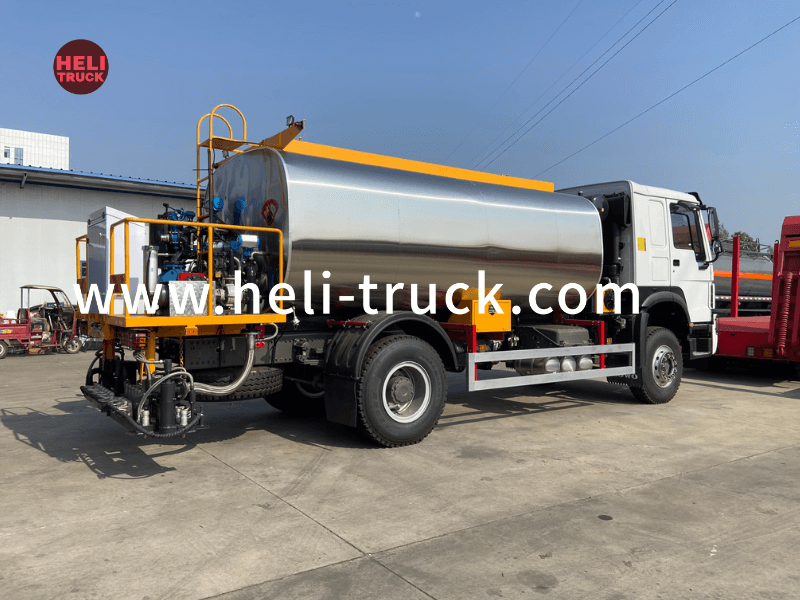Fire Truck Community Outreach Fostering Safety Education and Support

Introduction:
Firefighters are not only known for their bravery and selflessness in battling fires and rescuing individuals in perilous situations. Aerial platform truck technology play a crucial role in community outreach, actively engaging with local residents to promote safety, provide education, and offer support. Fire truck community outreach programs have become an integral part of fire departments worldwide, helping to build strong relationships between firefighters and the communities they serve. In this article, we will explore the significance of fire truck community outreach, its various initiatives, and the positive impact it has on society.
Section 1: The Importance of Fire Truck Community Outreach
1.1 Enhancing Fire Safety Awareness:
One of the primary goals of fire truck community outreach is to enhance fire safety awareness among individuals of all ages. By conducting interactive workshops, demonstrations, and educational sessions, firefighters educate community members about fire prevention, proper handling of fire extinguishers, and the importance of smoke detectors. These initiatives empower individuals to take proactive measures in safeguarding their homes and families from potential fire hazards.
1.2 Strengthening Public-Service Relationships:
Community outreach programs allow firefighters to foster strong relationships with the public they serve. By participating in events, such as open houses, parades, and neighborhood gatherings, firefighters have the opportunity to interact with community members on a personal level. Building trust and rapport with the public is crucial, as it not only helps in emergency situations but also encourages individuals to reach out to firefighters for assistance and guidance.
1.3 Promoting Recruitment and Diversity:
Fire truck community outreach initiatives also play a vital role in promoting recruitment and diversity within the fire service. By actively engaging with local schools, colleges, and community organizations, firefighters can inspire young individuals to consider a career in firefighting. Furthermore, these programs emphasize the importance of diversity and encourage individuals from all backgrounds to join the fire service, ensuring a more inclusive and representative workforce.
Section 2: Fire Truck Community Outreach Initiatives
2.1 School Programs and Demonstrations:
Firefighters regularly visit local schools to educate students about fire safety and prevention. These programs often include interactive demonstrations of fire truck equipment, teaching children how to respond during emergencies, and providing important tips on creating fire escape plans. By engaging with students at a young age, firefighters instill lifelong fire safety habits and empower them to become responsible members of their communities.
2.2 Community Events and Open Houses:
Fire departments organize community events and open houses, inviting residents to their stations for a day of fun and education. Firefighters demonstrate how to use fire extinguishers, provide hands-on CPR training, and conduct fire truck tours. These events not only create a sense of camaraderie between firefighters and community members but also help individuals understand the essential role of fire departments in their neighborhoods.
2.3 Senior Citizen Outreach:
Fire truck community outreach programs often prioritize reaching out to senior citizens, who may be more vulnerable to fire hazards and in need of additional assistance. Firefighters conduct home safety inspections, checking for potential fire risks, and providing recommendations for improvement. Additionally, they offer educational sessions specifically tailored to the needs of senior citizens, addressing topics such as fall prevention, emergency preparedness, and fire escape plans.
2.4 Safety Education Campaigns:
Firefighters collaborate with local organizations and businesses to launch safety education campaigns. These campaigns involve distributing educational materials, organizing workshops, and hosting community meetings to address specific safety concerns. Topics can range from seasonal fire safety (such as fireworks and Christmas decorations) to general home safety practices. By actively engaging with the community and raising awareness, firefighters help prevent accidents and reduce the number of fire-related incidents.
Section 3: The Impact of Fire Truck Community Outreach
3.1 Increased Fire Safety Knowledge:
Fire truck community outreach initiatives have proven to be effective in increasing fire safety knowledge among community members. Through interactive sessions, demonstrations, and educational materials, individuals gain a better understanding of potential fire hazards and appropriate preventive measures. This knowledge empowers them to take proactive steps in creating a safer living environment for themselves and their loved ones.
3.2 Improved Emergency Response:
Strong relationships forged through community outreach programs enhance emergency response efforts. When individuals are familiar with their local firefighters and feel comfortable reaching out to them, they are more likely to report emergencies promptly. This leads to quicker response times, minimizing the potential damage caused by fires and other emergencies. Additionally, community members who have received fire safety training are better equipped to respond appropriately during critical situations, potentially saving lives and reducing injuries.
3.3 Building Trust and Support:

Fire truck community outreach programs contribute to the establishment of trust and support between firefighters and the public. When community members actively engage with firefighters and witness their dedication and expertise, they develop a sense of confidence in their local fire service. This trust translates into increased support for fire departments, such as through volunteerism, donations, and advocacy for improved resources and training.
Conclusion:
Fire truck community outreach programs are a vital component of modern firefighting services. By actively engaging with individuals of all ages, firefighters promote fire safety awareness, strengthen public-service relationships, and foster a sense of trust and support in their communities. Through initiatives such as school programs, open houses, and safety education campaigns, firefighters empower community members to take proactive measures in preventing emergencies and responding effectively during critical situations. The impact of fire truck community outreach is undeniable, contributing to safer neighborhoods, reduced fire-related incidents, and a more cohesive society overall.
